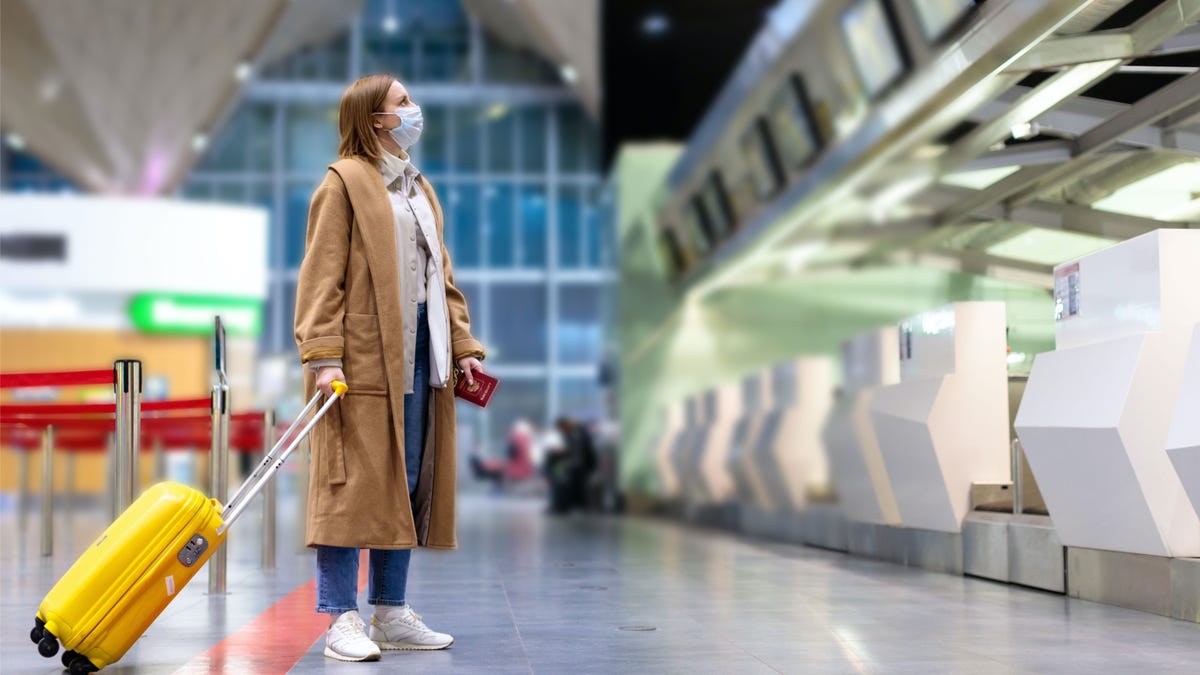Is It Safe to Travel Yet? - 4 minutes read

Vaccines are becoming more available and coronavirus cases are dropping nationwide. If you stayed home all winter, you might be wondering if it’s finally okay to take a vacation somewhere. The short answer is: not really. The long answer? Let’s dive in.
The CDC still recommends against traveling
Traveling can increase your chance of getting COVID-19, and it can increase your chance of spreading it to others. This is still true, and it will be the case as long as COVID is spreading in communities.
The CDC has a list of things to ask yourself before you go on a trip. If you’re considering planning one, definitely go through the list and be honest with yourself about your answers. (Yes, even if you or others in your life are vaccinated.) A few of those questions include:
Are you, your family members, or anyone you may be visiting high risk?
Will your travel plans bring you in close contact with others—for example, being on an airplane or sharing a car with people you don’t live with?
Will you have close contact with people outside your home in the 14 days before traveling? This includes being in crowds, dining in restaurants, and using public transit.
If you answer “yes” to any of these questions, or the others on the list, the CDC says you should avoid nonessential travel. Their recommendations may change as community spread decreases, but for now, it’s best to be cautious.
If you’re vaccinated, the risk to you, personally, is low
Vaccinated people can visit other vaccinated people, and can carefully visit one unvaccinated household, according to recent CDC guidance. So is it okay to jet across the country to visit family you haven’t seen in a year? Not necessarily.
First, remember that there’s a small possibility you might be able to transmit the virus to others. So while you don’t need to quarantine after an exposure, you should still wear masks and follow other precautions while around others.
Second, think of all the people who will contact each other as a result of your travel. If you visit an unvaccinated friend and go out to eat, that may be safe for you, but it’s not safe for your friend or for the restaurant staff. And if you’re bringing children or other unvaccinated family members along on your vacation, they could easily pick up the virus and potentially spread it to others.
Travel is not an excuse to do things that would otherwise be unsafe
You see where this is going, right? The rules for when to mask up and what situations to avoid are the same at home as when you’re traveling. If you wouldn’t cram yourself into a small room for hours with a bunch of strangers in your hometown, you shouldn’t do the same thing in an airplane.
Travel introduces us to risks we wouldn’t face at home. Two experts told NPR recently that they wouldn’t travel to states like Texas and Florida that have completely loosened restrictions; the risk is just too high.
The risks of travel may well change as time goes by; everything will be a bit safer when more people are vaccinated. If you’re itching for a “real” vacation, it may be best to start cautiously planning for something later this year or next year—keeping an eye on cancellation policies, just in case.
Road trips to outdoor destinations are still safest
So does this mean you can’t travel at all? Well, it depends. Flying somewhere to party with strangers is flat-out inadvisable. But if you can manage to travel and stay at your destination without coming into close contact with others outside of your household, you have at least a few options.
For example, people from your household (or yours plus another, if enough of you are vaccinated) can pile into the family car and go on a road trip together. That eliminates the risks of airports, airplanes, and rideshares. Pack snacks or order takeout along the way, so you aren’t spending time in restaurants.
Where to go? Hotels are okay, but what’s even better is to rent a vacation house or stay in a tent or a cabin, where the only people you’ll contact are those you traveled with. And for outings, instead of restaurants and museums, check out outdoor attractions like beaches and parks.
Camping works; so might a road trip to visit family, if planned carefully. For example, this could be a fine way to let your vaccinated parents finally hug their grandkids. Whatever you do, make sure to follow any guidelines about quarantine and testing that may apply along the route. The more we can stay safe, the sooner we’ll be able to get back to planning big, ambitious vacations.
Source: Lifehacker.com
Powered by NewsAPI.org